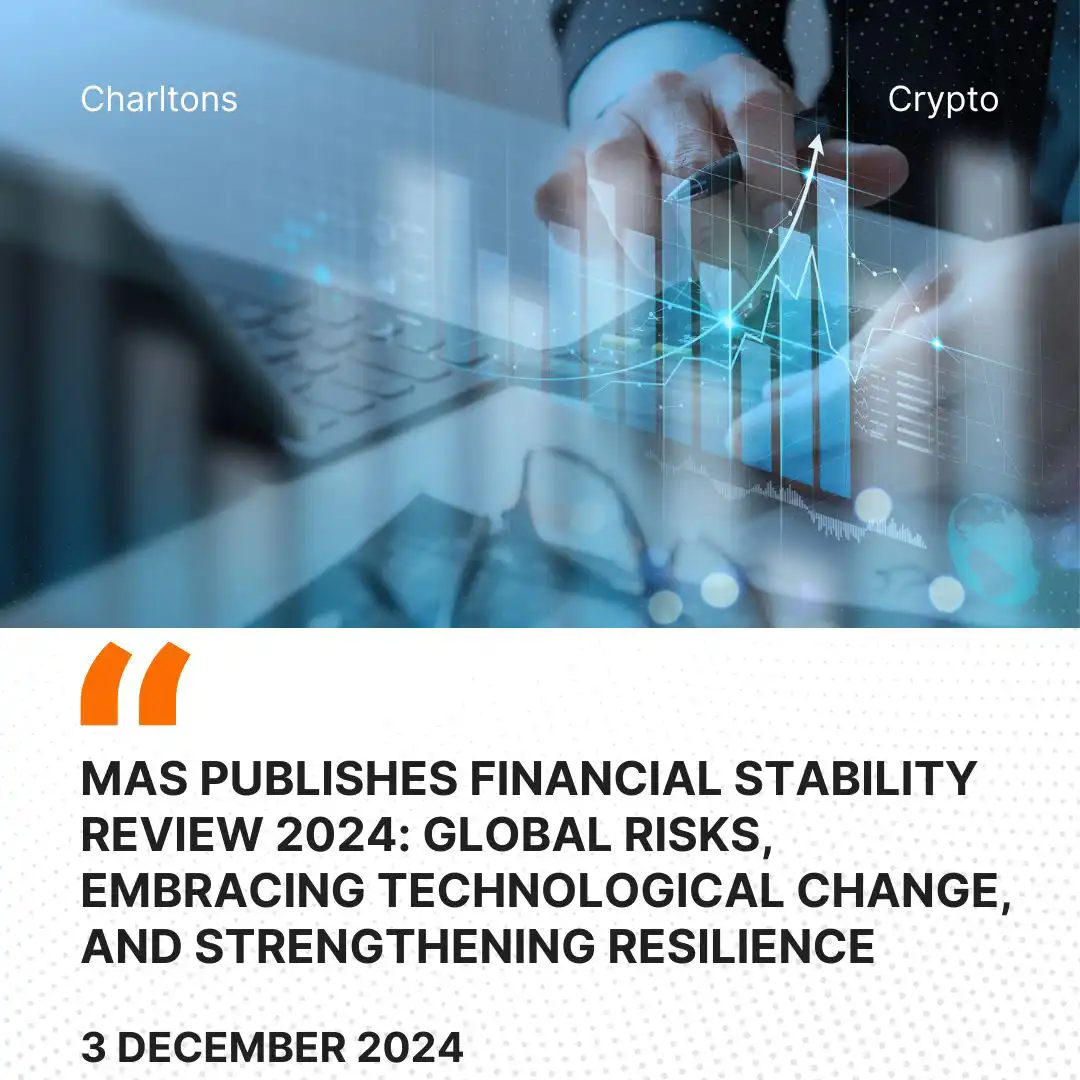
On 27 November 2024, the Monetary Authority of Singapore published the Singapore’s 2024 Financial Stability Review, offering an incisive analysis of the challenges and opportunities in an increasingly uncertain global economic landscape. The document evaluates macrofinancial risks, corporate and household sector vulnerabilities, and the health of the financial sector, while also addressing emerging themes such as virtual assets, artificial intelligence (AI), and quantum technologies.
The MAS FSR 2024 outlines the challenges posed by a volatile global macrofinancial environment. With geopolitical conflicts, trade tensions, and elevated debt levels across advanced and emerging economies, the probability of adverse financial shocks remains high. Key vulnerabilities include stretched asset valuations, fiscal imbalances, and the risk of sudden corrections in financial markets. While emerging markets in Asia are better positioned with stronger buffers, policymakers are cautioned to maintain vigilance and adapt quickly to external shocks.
Singapore’s corporate sector has remained stable despite elevated global uncertainties. The FSR highlights improved financial conditions, with corporate debt levels significantly below pre-pandemic peaks. Small and medium-sized enterprises (SMEs) have benefited from expanding access to credit, while larger firms continue to maintain robust liquidity buffers. However, external-facing companies are identified as more vulnerable due to global trade disruptions and geopolitical risks. Stress tests affirm that most corporates have adequate buffers to withstand potential earnings declines and interest rate increases.
Insights from Chart Panel 2A: SME financing conditions have shown positive momentum, with an increase in the number of borrowers and healthy property-backed collateralization of loans. However, caution is warranted as certain sectors, like construction, face increased vulnerabilities.
Households in Singapore have demonstrated strong financial health, supported by wage growth and moderated mortgage rates. The report notes that household debt has grown at a slower pace than financial assets, maintaining a manageable debt-to-income ratio. The private residential property market has stabilized, with slowing price growth and easing rental pressures. Liquidity risks are low, as household cash and deposits continue to exceed liabilities, reinforcing the sector’s resilience.
The financial sector, comprising banks and non-bank financial institutions, remains a pillar of stability. Banks exhibit strong capital positions and low non-performing loan ratios, while insurance providers and investment funds effectively manage liquidity risks. Stress tests on domestic systemically important banks (D-SIBs) reveal their capacity to withstand severe macroeconomic shocks, ensuring continued financial system robustness.
Box B: Stress Test of D-SIBs
The MAS stress-tested Singapore’s D-SIBs against scenarios involving severe global downturns and financial market dislocations. Results affirm that banks retain sufficient capital to weather extreme conditions, though profitability may come under pressure.
Box C: Fire Sale Contagion from Investment Funds
The review raises concerns about potential market disruptions from fire sales by investment funds facing liquidity stress. Such scenarios could lead to abrupt asset repricing and market-wide volatility, necessitating proactive risk management.
The FSR introduces key updates in securities regulations aimed at fostering transparency, protecting investors, and aligning with international standards. These include enhanced disclosure requirements for listed companies and stricter governance rules for trading activities.
The adoption of blockchain technology in securities trading is also emphasised as a major innovation. Pilot projects exploring tokenized securities highlight MAS’s commitment to integrating digital solutions, improving trade efficiency, and reducing transaction costs.
The FSR includes two special features addressing critical financial stability themes i.e. Asian Capital Flows and the Global Financial Cycle, which explores the resilience of Asian economies to monetary tightening and global financial volatility and Expanding the Toolkit for Macroprudential Surveillance by advanced data analytics and stress-testing models in managing systemic risks. The integration of climate-related risk assessments and digital asset monitoring tools reflects a forward-looking approach to financial stability.
The MAS FSR 2024 discusses the increasing relevance of emerging technologies in financial markets such as Virtual Assets, Quantum Technology and Artificial Intelligence. MAS discusses the importance of regulating virtual assets to mitigate risks associated with volatility and illicit activities. Collaborations with global regulators aim to harmonize standards and enhance stability in this rapidly evolving space. MAS FSR 2024 also delves into the advent of quantum computing, MAS advocates for early adoption of quantum-resilient cryptographic protocols to safeguard data and maintain cybersecurity. MAS FSR 2024 also discusses the responsible use of AI. It is encouraged to improve risk management and operational efficiency while ensuring fairness and transparency in financial services.
(Source: https://www.mas.gov.sg/-/media/mas-media-library/publications/financial-stability-review/2024/financial-stability-review-2024.pdf, https://www.mas.gov.sg/publications/financial-stability-review/2024/financial-stability-review-2024)





